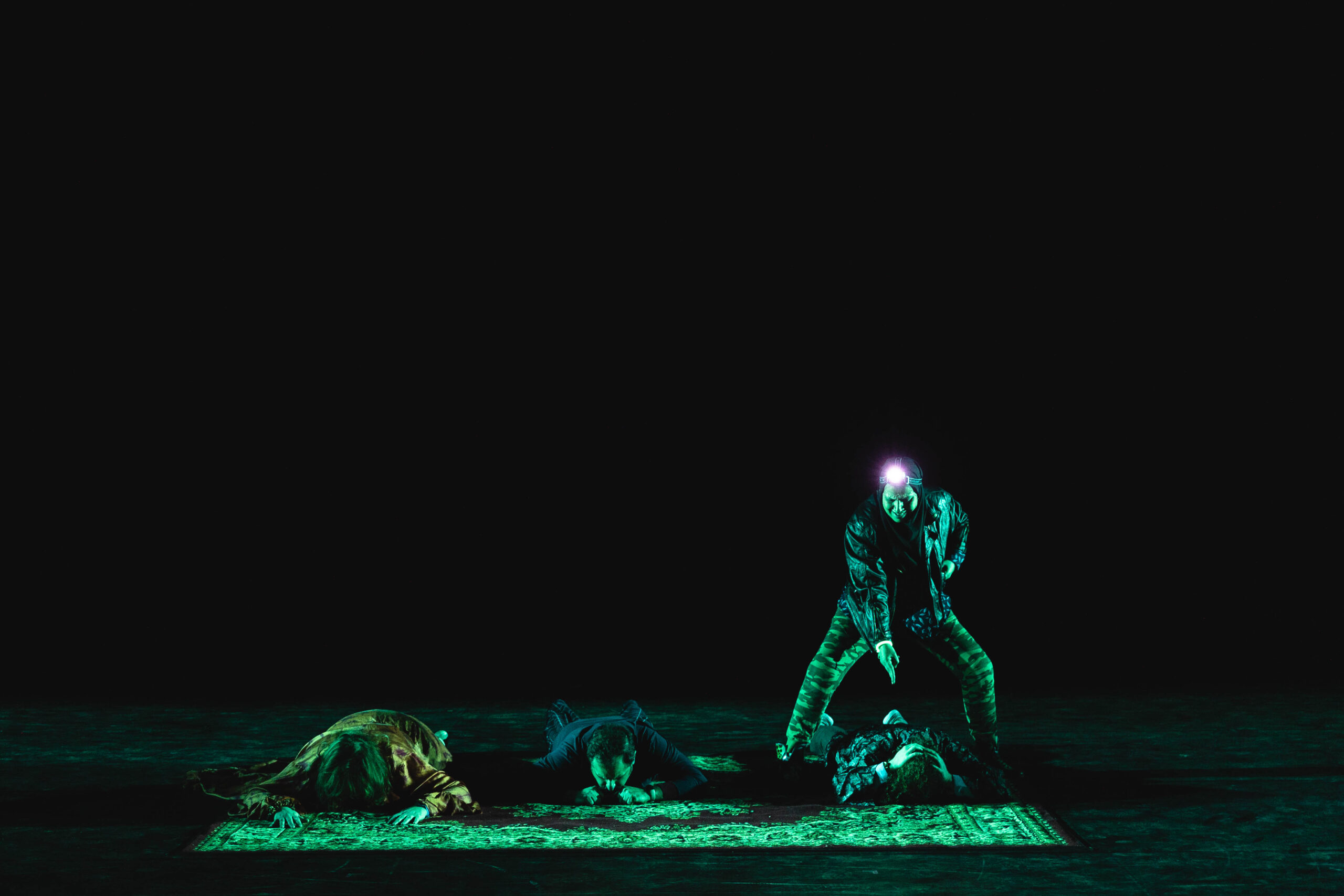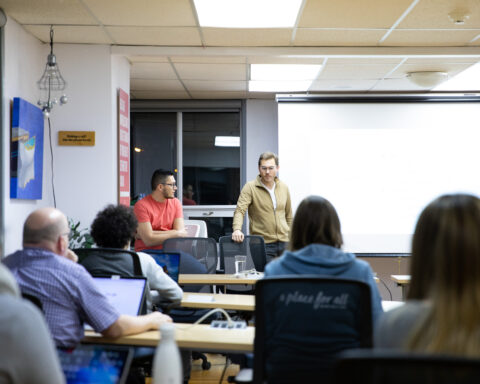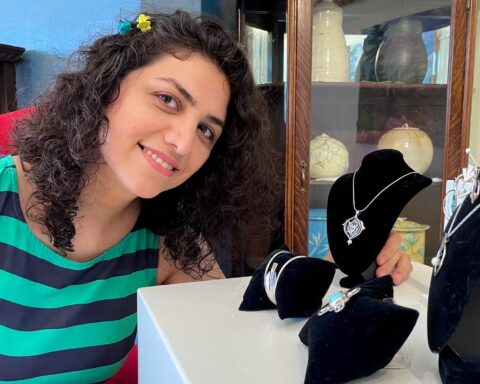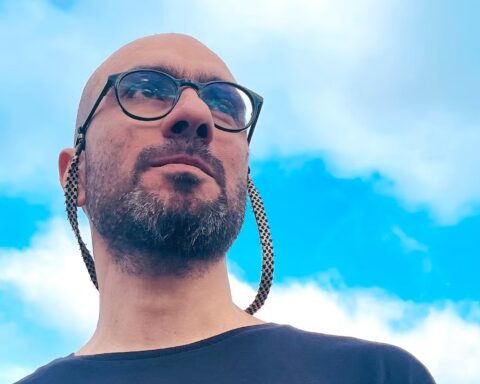Freedom; who has it, what are people free to do and who makes those determinations is a controversial subject in politics. Currently, in various geopolitical contexts, in the United States, Russia, and here in Canada, the idea of freedom is being challenged.
Freedom is also central to the story of Mohammad Yaghoubi and the play Heart of a Dog. The play is a comical adaptation by the award-winning Iranian director and playwright, based on a novel of the same name by Russian writer Mikhail Bulgakov. The novel is seen as an allegory for the Communist revolution and a scathing critique of the Soviet Union’s attempt to impose its ideologies to the world. Publication of Heart of a Dog was prohibited in the Soviet Union until 1987.
Yaghoubi also ran into issues with censorship when adapting the novel into a play. As Yaghoubi explained, Iran is an authoritarian country where many freedoms are significantly limited. Initially, Yaghoubi wanted the main character, the dog, to be played by a woman. However, this was impossible in Iran because women’s bodies are politicized, they don’t have autonomy, and the censorship bureau said no.In the English premier of Heart of a Dog, the lead is played by Iranian actor and director, Aida Keykhalii. The two eventually got married and founded a theatre group in Iran called InRoozHa. They decided to move to Canada in 2015 to escape the harassment of the censorship bureaus and started Nowadays Theatre.
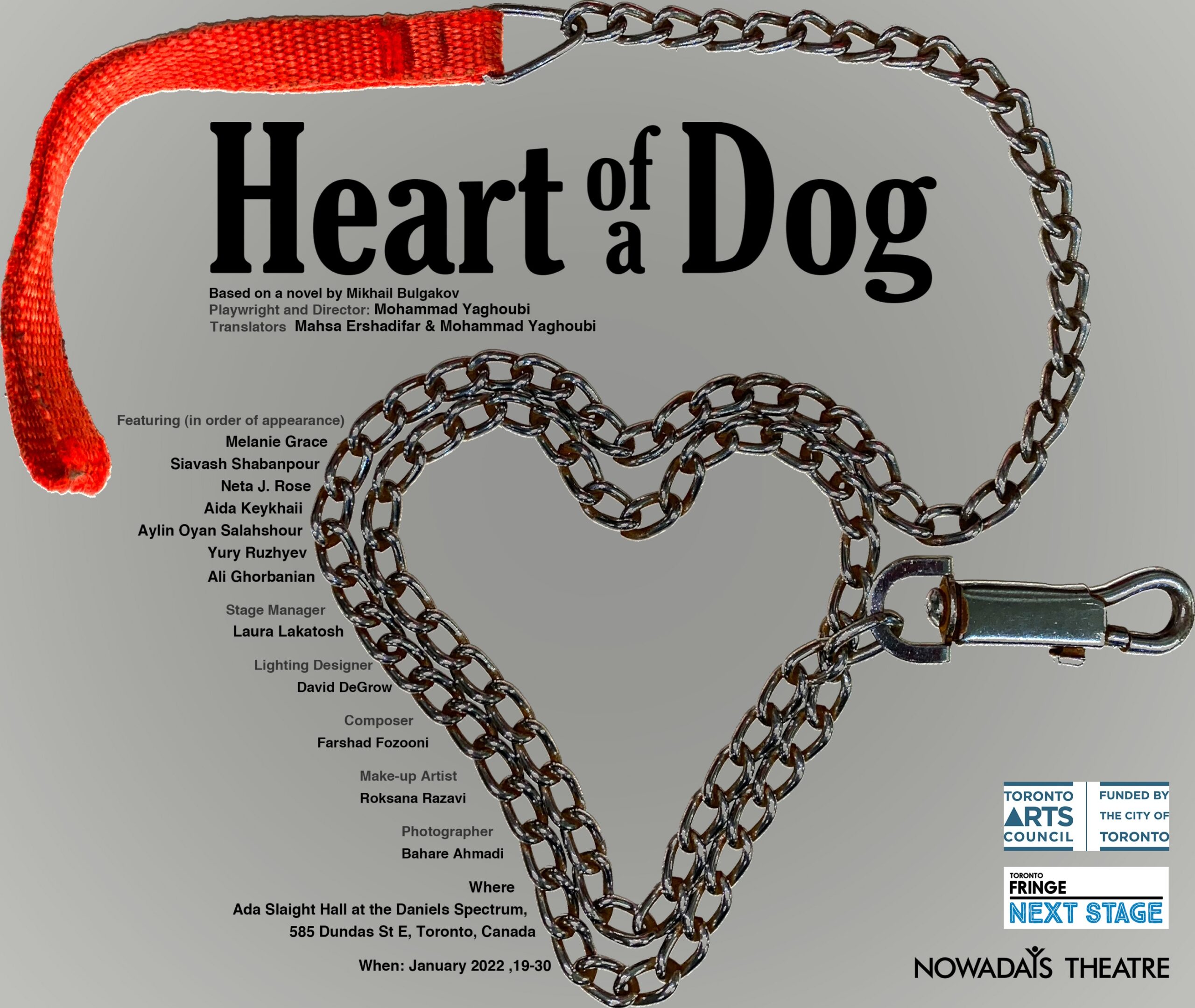
New Canadian Media spoke to them about the play and their experiences in both Canada and Iran.
The audio version of this conversation below focuses on freedom of expression, the play, and Yaghoubi and Keykhali’s experiences in Iran.
The text version of this conversation below focuses on immigration and integration, and the differences between Canada and Iran. This conversation was edited and condensed for clarity.
Aida Keykhali: When you’re living in a country like Iran with lots of censorship, your brain works differently. You don’t have even in your private moments this idea in your head that you can do that. You are wired that you’re not allowed.
How does that affect you as an actor, knowing that there are certain roles you can’t do or certain things that your character isn’t allowed to do?
Aida: Before I came to Canada, even in my mind, I couldn’t think that I could do this kind of role. Because I grew up in Iran, from the first moment I remember I had a scarf on my head, with lots of censorship, with lots of limitations on lots of things because I’m a woman.When we immigrated here, Mohammad wanted to produce this and he told me, “Aida, do you want to do the role of the dog?” And I said, “Mohammad, do you think I can do that?” He said, “Yeah, we’re living here, in a free country, you can do that.” It was very shocking for me. And when I tried to do that [move], I said, “Oh, my God, I have lots of abilities in my body, in my voice that I never had a chance to present.
When that board comes in to oversee something, if they don’t approve, are you still able to publish it and then deal with the consequences or if they say no, it can’t be published at all?
Mohammad Yaghoubi: This is the part of the theatre that I love, because you can disobey. But to disobey has results, that’s why we are here now, because we disobeyed too much and they punished us. Every time they asked us to cut something in theatre, we had two options: First, do whatever they told us or change it another way so I can say, “okay, I changed it but I did it the other radical way I had in my pocket.” Audiences love that disobedience. But the censorship office, whenever they saw that we tried to resist, they got revenge on us with our next production.
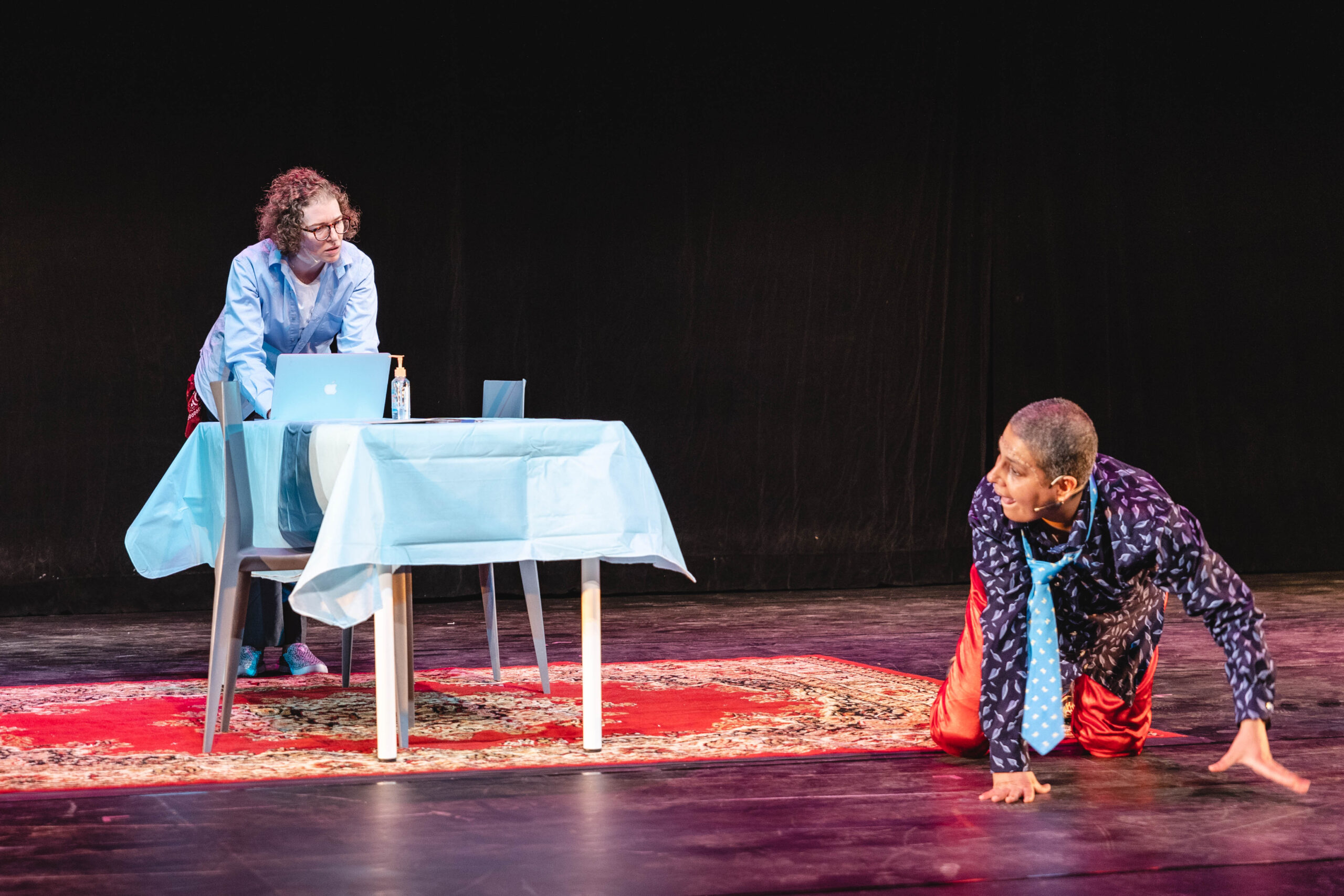
What are the benefits of pushing those boundaries and taking those risks if you get punished for it, if it ends with you having to leave the country?
Mohammad: For me, it’s celebrating theatre. Asserting I’m a living person, not a robot. This is art and I can feel I’m alive by showing rejection, showing resistance. I love this part of theatre. Theatre is inherently a political movement, but in a country with many boundaries, such as Iran, doing theatre is a much more political movement than anywhere else. Because it’s a live art you can change anytime, because of its capability of change. I think it was the best way for us to connect with the audience.
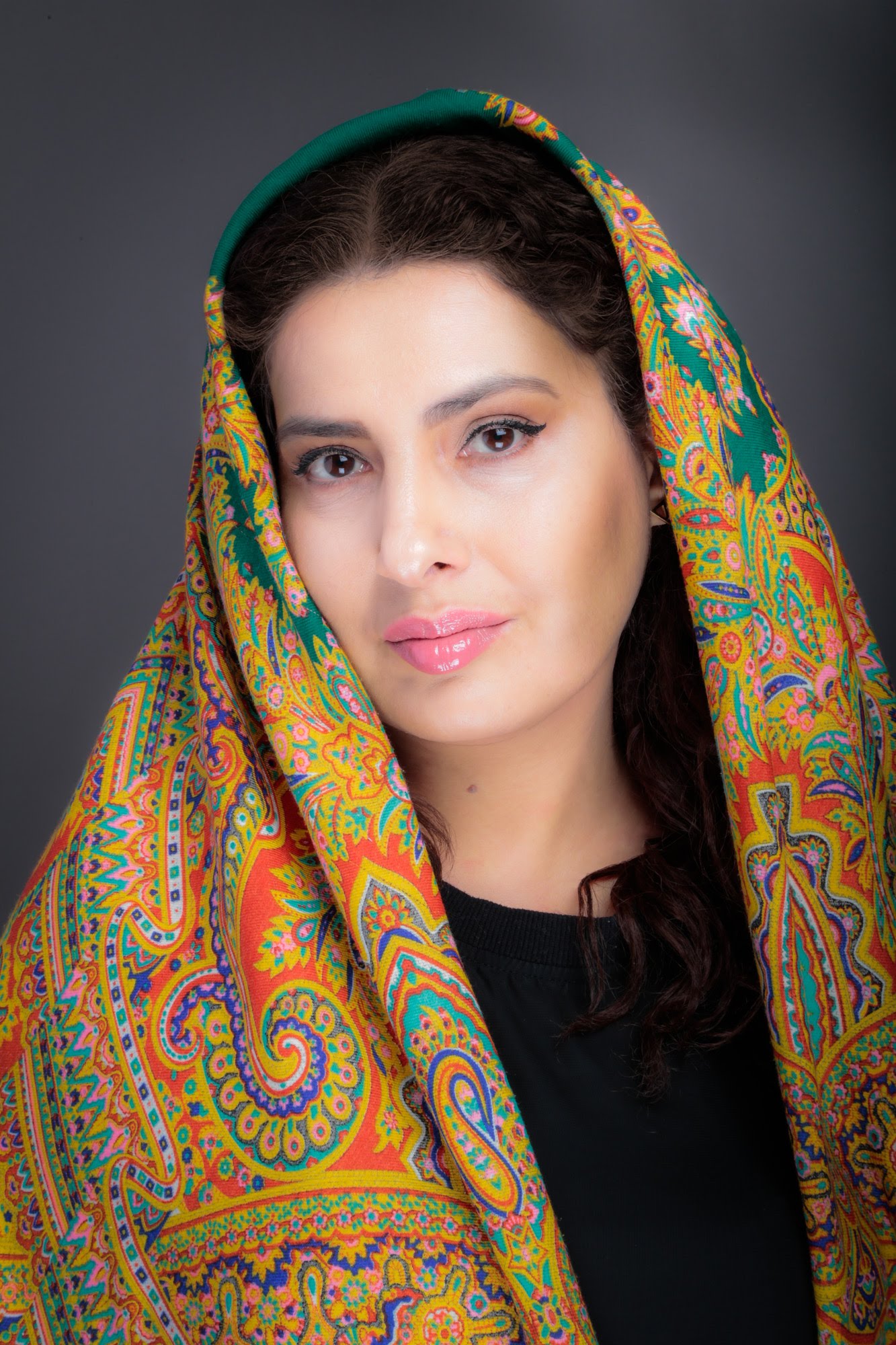
Aida: Me as an artist, I think it’s our responsibility to act based on our beliefs. When I wanted to direct a play and there was a role and the girl was a prostitute. They said, “No, you cannot do that. Could you change the job to a nurse?” I said “What are you talking about? She became a prostitute because of a lot of problems.” These are the things that I want to show, it’s a social matter that I want to talk about. They said, “we cannot show that because there is no prostitution in Iran.” They’re stupid. We cannot obey them because we don’t want to be like them.
In the play, Polygraf Polygrafovich Sharikov grows more dissatisfied with their situation as they develop intellectually and you see the two doctors have less patience with Sharikov and are more dismissive. I thought it was an interesting way to think about power dynamics, could you speak to that Mohammad?
Mohammad: I think the authorities in Iran don’t like Heart of a Dog because of the revolution in Iran. When I was under 30, I made my first draft of the Heart of a Dog adaptation. And I remember the Supreme Leader at that time, had a lecture about anti-revolutionary literature and he specifically mentioned Heart of a Dog as an anti-revolutionary novel in Russia. And I, as a young, inherently disobedient person, I thought, “Oh, if I make this play, it can be a hidden struggle with my Supreme Leader.” That’s why I did it. But I never told this to anyone, just Aida maybe. It was like a hidden fight.
That’s brave. You’re essentially saying that your approach to the play was going against the Supreme Leader because you were doing something you know is going to upset the Supreme Leader and that’s not someone most people would want to get into a confrontation with.
Mohammad: I like that way of fighting. You can say, “No, I didn’t know. It was just a novel that I liked, that’s it.” The second time I staged this play, I changed my approach to directing and I asked the men, like women, to wear scarves. The propaganda, governmental papers and TV stations (Channel Two) showed my picture [and said] this guy wants to mock the hijab.
In a totalitarian country, if everyone say, does an illegal move, even a small movement, based on their capability, we could change anything.
In a country like Iran, where speech isn’t 100 per cent free, what impact do you think that has on the average person? For example, when you asked the cast members to wear scarves, how do you think the average person would react to that?
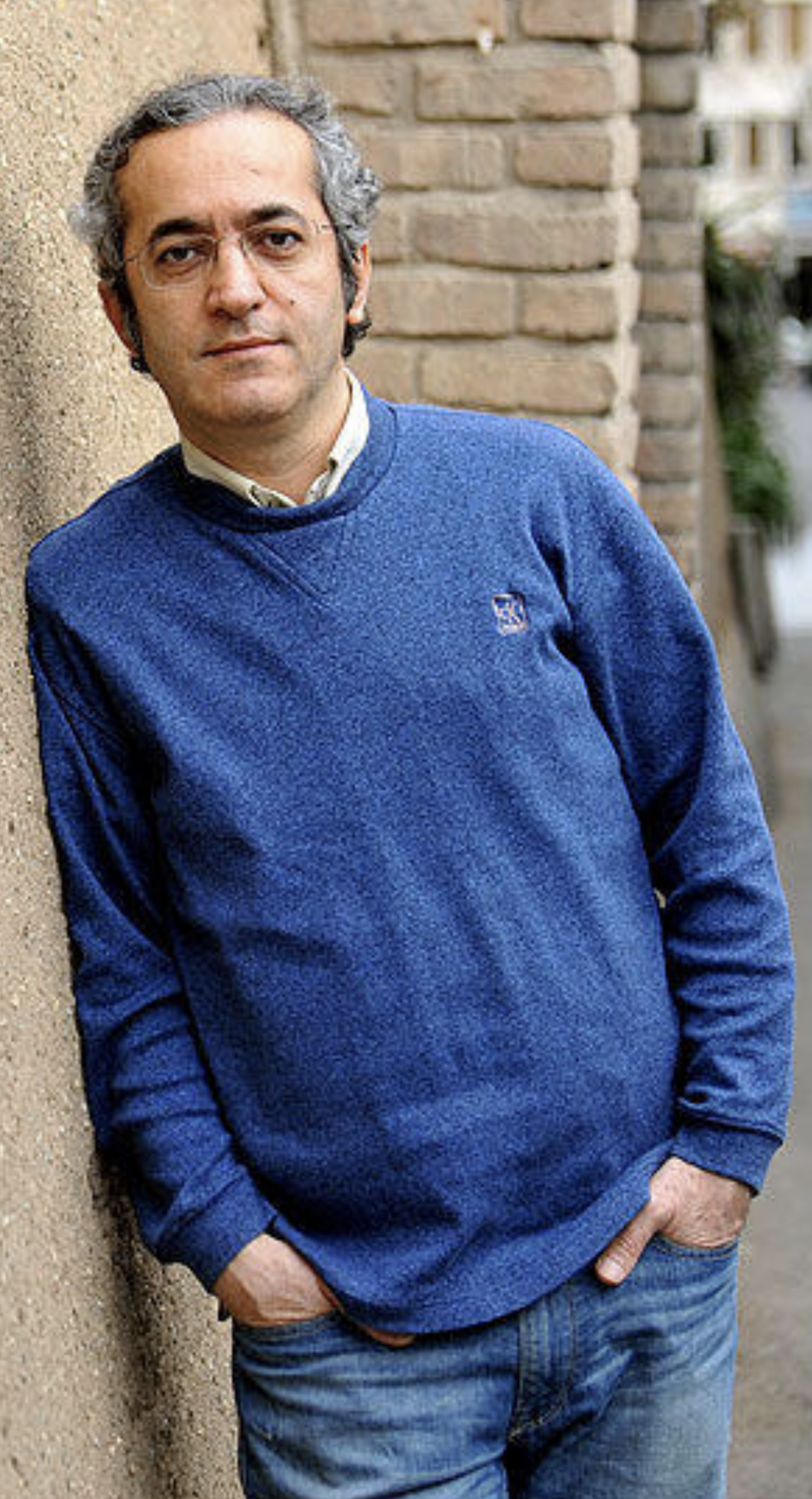
Mohammad: In Iran, only in cheap comedy does a male actor wear a hijab, and the censorship office doesn’t care because they know those kinds of theatre productions are just for laughter and entertainment. When I told my team I wanted the male actors to wear hijab, most of them liked my idea. Only one male actor didn’t like it but I could feel that it’s not his true answer. It was like he was shy and he couldn’t do it because it was humiliating to wear a hijab. Some of the female actors said, “now you can feel how difficult it is that we have to wear a hijab. You don’t like to wear a hijab, even for theatre.
For eight nights, all actors, male and female, had a hijab. After eight nights, the governmental TV station (Channel Two, 20:30 News) showed my picture and talked against me, and the governmental papers and websites wrote against me simultaneously. Then the minister of the venue called me and said, “Mohammad did you see the TV, what they wrote against you in the paper, what we should do now?” And I told him if hijab is good, I want my male actors to have hijabs like women. He told me “Mohammad, don’t say that to me. You know what you’re doing.”
Aida: Me and Mohammad are not against the hijab, we’re against mandatory hijabs. Women in Iran, if you ask 100 women, 90 of them are against the hijab but they have to wear it. If you want to wear it, wear it but I don’t like it, why should I wear it? They hate that people are different from them. This is the thing that Mohammad wanted to show in his production, that this kind of country wants to make people similar.
Mohammad: That was the connection between the Heart of a Dog and the Russian story and the Iranian story because after the revolution in Russia, the communist revolution, they forced people to be like each other. It’s ridiculous because that country was against God and Iran is an Islamic country but they are the same in terms of policy with their people. That’s why I thought this story is great to show how two different political countries can be the same like China, about their peoples; they force people to be like they want. This goes back to what you were talking about power dynamics. It’s about ownership and freedom.
Mohammad, you said in the director’s note that Russia’s and Iran’s approaches to freedom of expression and opinion are “ridiculous”, why?
Mohammad: Because in Iran, you will be arrested if you don’t believe in God, and in Russia when the Communist Party had power, they arrested people if anyone didn’t believe in God, which means these two countries are contradictory in terms of beliefs. But in terms of the policy, their behaviour towards their citizenship, they are similar. Even now, [Russian President Vladimir] Putin and the Supreme Leader, they are close friends. We can see why they are similar, because it’s bullshit what they believe. The same situation is in China, North Korea and in any other repressive countries in the world.
Aida: In Iran, if you change your religion, they can hang you. So they have no choice, it’s not that they believe, for example, in hijabs, really or they believe in God, really. It’s the thing that they have power over, these are the excuses for them to control people.
Mohammad: Now, look at the different policies the Iranian politicians have about Uyghur Muslims who are under pressure from the authorities in China. The Iranian authorities don’t say anything against China. Even though Iranian politicians all the time lecture about ‘we are Muslim, we want to defend any Muslim in the world,’ specifically about China’s Muslims, they are silent. Because the politicians of Iran, China, Russia, and North Korea have the same policies to harass and control their people, they exchange consults and inspire each other on how to better control and effectively repress their people.
Now that you’re in Canada and there’s more freedom, what does having that freedom mean to you both as a citizen but also as an artist?
Aida:
When I was in Iran, I didn’t know that I, as a human, have value. But now here I feel that I have value. I’m a person with specific thoughts that only belong to me, and people and the government respect it. I recently became a full-time ACTRA member [union for actors in Canada] and they sent me things to read about my rights and I told Mohammad, “I didn’t know that I have these kinds of rights as a human, let alone as an actor.” I didn’t know that I have some rights as a person to live in my life.
You know, it’s very sad because when I think about my friends, my family, everyone in Iran, they don’t know that they have these kinds of rights. As I told you, they brainwashed us, they did it at schools, everywhere, and we cannot think differently. But when we came here to a free country, and we understand that we have value, we can talk, we have a voice, it’s very different.
Mohammad: When we did theatre in Iran, all the time we had to focus on inventing ways to get around censorship. But here in Canada, when we wanted to do Heart of a Dog, we could only focus on the artistic practice to connect to the audience and engage them. I remember one time, feeling fed up predicting the censorship office about my work. I thought, “Oh, if they want to tell me to cut this phrase, this word, what if I asked actors to say 25 instead of anything the censorship office wanted me not to say.” The actors asked me, “why 25?” I didn’t tell them the reason. I just asked them to say 25. As you can imagine the censorship office asked me again before the public show, “Mohammad, What is 25?” I told them, “It’s just a number. If you want, I can change it to 19 or whatever you want.” But I knew why it was 25, 25 refers to code 25 of the constitution’s laws which says censorship is forbidden. There is a specific code in our constitution but they don’t care. After two or three shows, I used 25 and this approach to get around censorship, then I demystified this code and after that, I was not allowed to use 25.
Do you think artists have a responsibility to reflect society and to challenge norms? And why is that personally important?
Mohammad: Yes. It’s actually in our company’s mandate, my way of writing and working. In 2018, I started to write in English because I thought, “it doesn’t make sense not to write in English where I see English speaking in my everyday life. I finished my first play to practice writing in the second language and deliberately created characters who are newcomers to Canada to justify their unqualified English speaking. With this play, I tried to challenge the norm by discussing subjects such as race, freedom, and religion. I recently finished my second play, which is about my reflection on the policies and society here in Canada.
Aida: Yeah, and especially as a woman, I have a lot of responsibilities to do something as an artist.I directed a play named ‘Swim Team’ that spotlighted the boundaries Iranian women face in sports such as swimming. In the play the characters make an imaginary pool in their apartment and try to swim there with no water. I’ve heard many of my friends in Iran say that “we are just artists, we are not political people,” but it doesn’t make sense. They say these things only to get rid of being targeted by the authorities. But, when you live in Iran, whatever you do has a political impact. I like the English word ‘Artivist’, which is a combined word of ‘Artist’ and ‘Activist’. I’d say if you choose to be an artist in countries such as Iran, China, Russia, and North Korea, my advice is to be an Artivist.
Marcus is a poet, editor and freelance journalist based in Toronto. He currently works with New Canadian Media as an Editor and as a Freelance Writer for ByBlacks.com, The Edge: A Leader's Magazine and The Soapbox Press.

